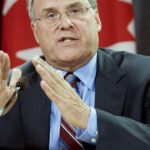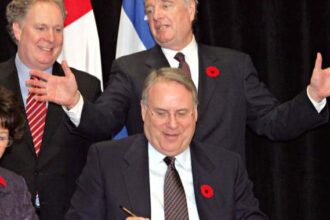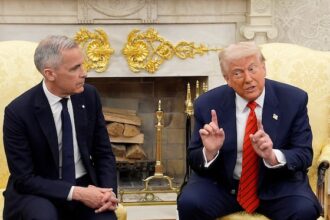In the pantheon of Canadian cultural icons who have successfully navigated the treacherous waters between sports stardom and political relevance, Ken Dryden stands as a towering example of purposeful transition. The Hall of Fame goaltender who backstopped the Montreal Canadiens to six Stanley Cup championships didn’t just hang up his skates to pursue politics as a vanity project or career afterthought—he approached his second act with the same methodical focus that made him legendary between the pipes.
What distinguishes Dryden from the typical athlete-turned-politician narrative is the intellectual continuity between his two careers. While playing for the Canadiens, Dryden wasn’t just stopping pucks; he was observing, analyzing, and documenting the game around him. His seminal book “The Game,” widely considered the finest hockey book ever written, revealed an athlete who understood that sports existed within a broader social context, not separate from it.
“Sports isn’t just about what happens on the ice or field,” Dryden once noted. “It’s about community, identity, and shared purpose.” This perspective would become the philosophical bridge between his athletic and political careers.
When Dryden entered Parliament as a Liberal MP in 2004, he brought with him an unusual perspective. Unlike career politicians who might reference sports in superficial ways to appear relatable, Dryden understood the authentic connections between team dynamics and governance. His approach to childcare policy—perhaps his most significant political legacy—reflected the same patient, long-term thinking that characterized his goaltending style.
The former goalkeeper’s approach to politics wasn’t about scoring quick political points. As Minister of Social Development under Paul Martin, Dryden crafted a national childcare program that emphasized systems thinking over flashy initiatives. The program, ultimately dismantled by Stephen Harper’s Conservative government, demonstrated Dryden’s understanding that meaningful change requires the same attention to fundamentals that championship teams demand.
Contrast this with many other sports figures who enter politics. Too often, their platforms rely heavily on name recognition rather than substantive policy knowledge. Dryden, conversely, used his celebrity strategically—as a door opener rather than as the entire house. His deeply researched positions on education, childcare, and social development revealed a mind that had been preparing for public service long before he formally entered it.
“The discipline required to excel in professional sports and the discipline needed to create effective policy aren’t as different as people might think,” noted political analyst Marie Leblanc in a recent discussion on CO24 Culture. “Both require sustained focus, attention to detail, and the ability to perform under scrutiny.”
Perhaps what’s most instructive about Dryden’s transition is his willingness to start over intellectually. Despite his legendary status in hockey, Dryden entered politics with a learner’s mindset. He didn’t presume that stopping pucks qualified him to solve complex social problems. Instead, he applied the same studious approach that made him write detailed notes after hockey games to understanding policy challenges.
His post-political career has continued this pattern of purposeful engagement. His work on concussions and player safety demonstrates how his understanding of both worlds allows him to address complex issues with nuanced perspective, as explored in his book “Game Change.” This isn’t a former athlete dabbling in causes—it’s a serious intellectual using his unique dual perspective to address problems others might miss.
What can aspiring politician-athletes learn from Dryden’s example? The lesson isn’t simply that successful athletes can become successful politicians. Rather, it’s that the transition requires intentional bridge-building between these worlds. It demands recognition that while fame might get you through the door, substance is what allows you to actually accomplish something once inside.
In an era where celebrity increasingly intersects with political ambition, Dryden’s legacy offers a challenging standard. His approach reminds us that the most meaningful contributions come not from those who merely leverage their fame, but from those who have something substantive to say and the disciplined mind to implement their vision.
As we consider the relationship between sports and politics in Canada, we might ask ourselves: Do we want celebrities who dabble in policy, or thoughtful individuals who can truly translate the best lessons from one arena to another? Ken Dryden’s career suggests the latter path is far more likely to leave a lasting legacy worth celebrating.
For more perspectives on the intersection of cultural figures and political influence, visit CO24 Opinions for our continuing analysis of how public figures shape our social landscape.























